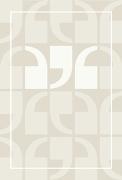Read more
About the author
Ruth Edith Hagengruber is a German philosopher and Professor of Philosophy at the University of Paderborn. She specialises in the history of women philosophers, focusing on the mathematician, physicist and philosopher Émilie Du Châtelet.
Hagengruber’s research is dedicated to the revision of patriarchal history, specially to the rediscovery of women’s alternative contributions to the history of philosophy and the history of economics, with a focus on circular and universality based economics as an approach to integrative economic ethics. She has published on value theory in Feminist Economics and reflects on technical design from a feminist and inclusive point of view, such as autonomous driving, a different approach to labour, and a profound recognition of creative skills. She specializes in the history of women philosophers.
Hagengruber is founder and director of the Center for the History of Women Philosophers and Scientists and founder of the research area EcoTechGender. She is editor of the German Springer series Frauen in Philosophie und Wissenschaft (since 2014), as co-editor of the international Springer series Women in the History of Philosophy and Science (since 2018). For the Center she conceptionalised the first and digital Encyclopedia of Consice Concepts by Women Philosophers.
She founded and co-edits the Journal for the History of Women Philosophers at Brill’s. With De Gruyter Publishing she edits the series Women Philosophers World Heritage Collection.
She became Life-member of the International Association of Philosophy of Information Science (2011), and is an elected member of the Leibniz-Sozietät der Wissenschaften zu Berlin (2020). Since 2021 she serves as the secretary of the International Association of Women Philosophers.
Summary
Die 1743 in Deutschland erschienen Übersetzung der Institutions physiques wurde zu einem der wichtigsten philosophischen Bücher der deutschen Aufklärung. Wolff, Kant, Euler setzten sich intensiv mit den neuen Ideen auseinander, die Du Châtelet in ihrer Naturlehre präsentierte. Ihre Hypothesentheorie beeinflusste die Wissenschaftstheorie bis ins 20. Jahrhundert.

